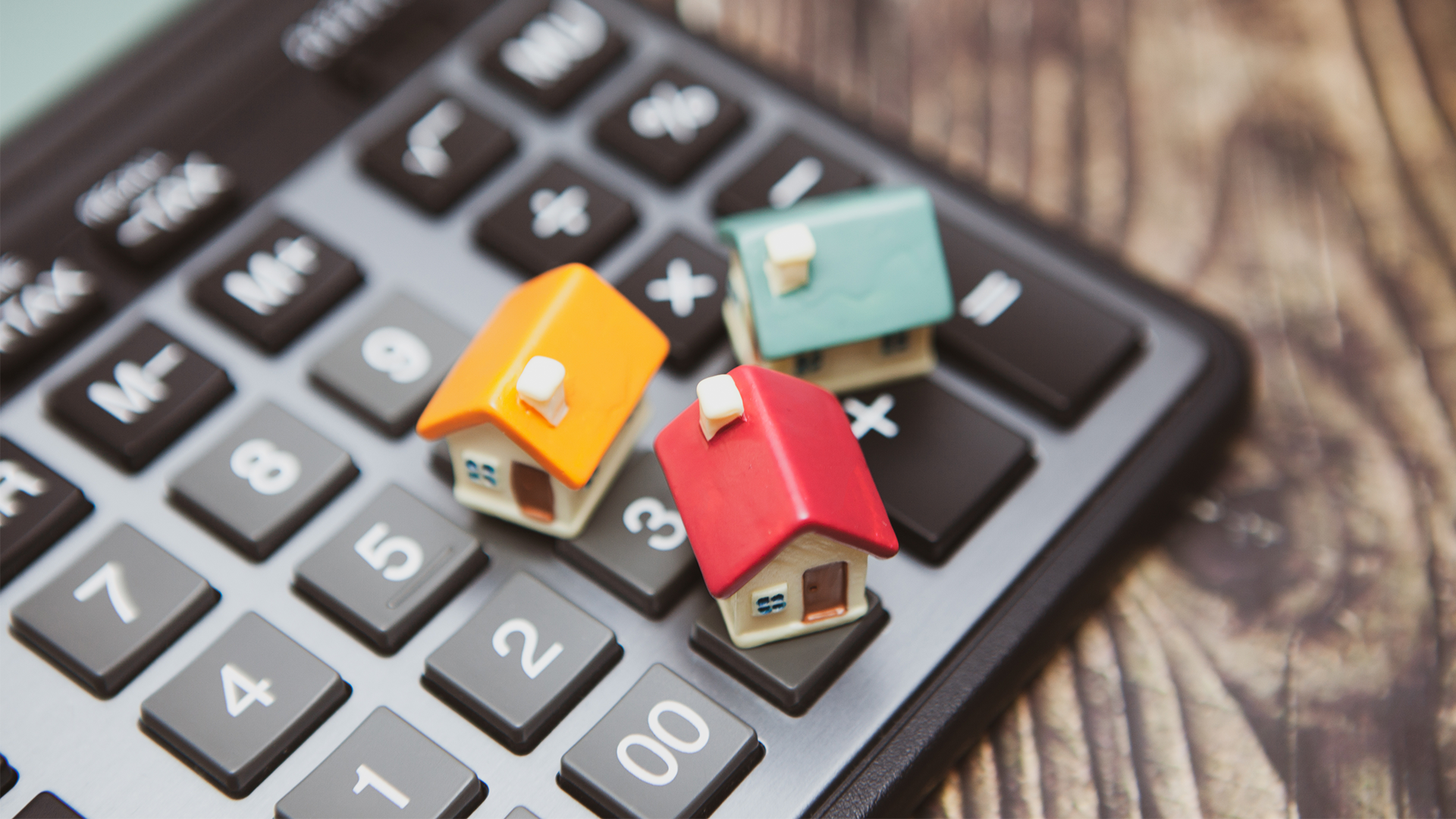In this article
When you hear the term “home equity,” you might wonder exactly what it means and how is equity in a home calculated.
Understanding your home equity is crucial because it represents the value of your financial stake in your property.
Whether you’re considering selling, refinancing, or taking out a loan, knowing how equity in a home is calculated can help you make informed financial decisions.
How is Equity in a Home Calculated
Explained in 3 min 21 seconds
Find more videos like this on MoneymanTV
What is Home Equity?
Home equity is the difference between the current market value of your home and the amount you still owe on your mortgage.
It’s the portion of your property that you truly own, free and clear of any loans. Over time, as you pay down your mortgage and if your home’s value increases, your equity grows.
Understanding how is equity in a home calculated is essential to managing your financial health effectively.
Calculating Home Equity
Calculating the equity in your home is straightforward, but it requires accurate information about two key factors: the current market value of your home and the outstanding balance on your mortgage.
Here’s how equity in a home can be calculated:
1. Determine Your Home’s Market Value
When calculating how much equity is in your home, the first step is determining the current market value of your property.
This is the price your home would likely sell for in the current real estate market. You can get an estimate of your home’s value by looking at recent sales of similar-sized properties in your area or by using online valuation tools.
For a more accurate assessment, you should consider hiring a professional financial advisor or speaking with a local estate agent.
2. Find Out Your Outstanding Mortgage Balance
Next, when calculating how much equity is in your home you will need to find out how much you still owe on your mortgage.
This is your outstanding mortgage balance, which you can find on your most recent mortgage statement or by contacting your lender. It includes the principal amount you still need to repay, along with any accrued interest.
3. Subtract the Mortgage Balance from the Home’s Value
The final step is calculated by subtracting the mortgage balance from the home’s value. The formula looks like this:
Home Equity = Current Market Value – Outstanding Mortgage Balance
For example, if your home is valued at £400,000 and you owe £200,000 on your mortgage, your home equity would be £200,000. This is a simple way to calculate how much equity you have.
Speak to an Advisor – It’s Free!
Schedule a free callback from one of our experts today.
- All situations considered
- Transparent and honest mortgage advice
- We search 1000s of purchase and remortgage deals
Our customers rate us 4.9/5
Factors That Influence Home Equity
Several factors can influence how is equity in a home calculated and how much equity you have in your home.
Understanding these factors can help you better manage and grow your equity over time.
Mortgage Payments
Regular mortgage repayments gradually reduce the principal balance of your loan, which increases your home equity.
The more you pay down your mortgage, the more equity you build. Making overpayments when possible will build equity faster.
Home Value Appreciation
If the value of your home increases due to market conditions, renovations, or improvements, your equity will also increase.
For instance, if your home was originally worth £350,000 and its value rises to £400,000, your equity grows even if your mortgage balance remains the same.
Market Conditions
Broader market conditions, such as changes in the local real estate market or the economy, can affect your home’s value and, consequently, your equity. In a strong housing market, home values typically rise, boosting equity.
Conversely, in a declining market, home values may drop, reducing your equity. This variability is essential when considering how is equity in a home calculated and can be significant as we have experienced as a country.
Additional Borrowing
If you take out additional loans against your home’s equity, such as a home equity loan or a second mortgage, your equity will decrease because you’re increasing the total amount you owe on the property.
Additional borrowing can be in the form of an equity release mortgage, secured loan, or a further advance from your existing lender.
Mortgage Products Available to Release Equity
If required, there are several mortgage products available to help you release equity from your home.
Each of these products offers different benefits depending on your financial needs and goals.
Remortgaging
Refinancing your current mortgage with a new one that’s larger than your existing loan can provide a lump sum of cash based on your home equity.
A remortgage can be a particularly appealing option if you can secure better interest rates or terms. Retirement mortgage options are also available for those customers over the age of 50 wanting to release capital for one reason or another.
Home Equity Loan
This is a second mortgage that allows you to borrow a lump sum against the equity you’ve built up in your home.
It’s repaid over a fixed term with a set interest rate, making it a good choice for funding large expenses.
Lifetime Mortgage (Equity Release)
Available to homeowners aged 55 and older, a lifetime mortgage allows you to borrow against the value of your home without having to make monthly repayments.
Instead, the loan is repaid when the property is sold, typically after you pass away or move into long-term care.
Home Reversion Plan
Another form of equity release, this product allows you to sell a portion of your home to a reversion company in exchange for a lump sum or regular payments.
You continue to live in your home rent-free until you pass away or move into care, at which point the company takes its share from the sale.
Why Someone Might Want to Release Equity
Releasing equity from your home can provide access to funds that can be used for a variety of purposes.
Here are some common reasons why someone might choose to release equity:
Home Improvements
Using equity to fund renovations or upgrades can increase the value of your home and improve your living space.
Debt Consolidation
Releasing equity can allow you to consolidate high-interest debts into one lower-interest mortgage payment, simplifying your finances and potentially saving money on interest.
When considering a debt consolidation remortgage it is important to seek professional advice to avoid ending up in a worse situation and costly mistakes.
Supplementing Retirement Income
If your pension or other retirement income isn’t quite enough to cover your expenses, releasing equity can provide a steady stream of income to help maintain your lifestyle.
Supporting Family Members
You might choose to release equity to help children or grandchildren with significant expenses, such as buying a home, funding education, or starting a business.
Emergency Fund
Accessing your home’s equity can provide a financial cushion for unexpected expenses, such as medical bills or urgent repairs.
Purchasing a Second Property
Releasing equity can provide the down payment for a second property, whether it’s a holiday home or a buy to let property.
Why Understanding Home Equity is Important
Understanding how is equity in a home calculated is vital because it impacts your financial flexibility and the decisions you make regarding your property.
Accessing Funds
Knowing your home equity can help you determine how much you might be able to borrow if you’re considering taking out a loan, such as a home equity loan or an equity release product.
These loans are based on the amount of equity you’ve built up.
Selling Your Home
If you’re thinking about selling your home, understanding your equity gives you a clearer picture of how much profit you might make after paying off your mortgage.
The higher your equity, the more cash you’ll walk away with after the sale.
Refinancing
If you’re considering refinancing your mortgage to take advantage of lower interest rates or better terms, your equity will play a significant role.
Higher equity can help you secure more favourable refinancing terms due to lender pricing bands.
Retirement Planning
For many homeowners, home equity is a significant part of their retirement planning. Understanding how is equity in a home calculated can help you make decisions about downsizing, relocating, or using equity release to supplement your retirement income.
Building More Equity
Building more equity in your home over time can provide greater financial security and flexibility. Here are a few ways to increase your home equity:
Make Extra Mortgage Payments
Paying more than the minimum monthly mortgage payment can reduce your principal balance faster, building equity more quickly.
Invest in Home Improvements
Strategic home improvements, such as updating kitchens or bathrooms, can increase your home’s value, which in turn boosts your equity.
Avoid Taking on Additional Debt
While home equity loans can be useful, avoiding additional borrowing allows you to retain more equity in your home.
Final Thoughts on Home Equity
Understanding how is equity in a home calculated is a crucial part of managing your financial health as a homeowner. Whether you’re planning to sell, refinance, or borrow against your home, knowing how equity in a home is calculated gives you the power to make informed decisions.
If you’re considering taking advantage of your home’s equity, speaking with an independent mortgage broker like us can provide valuable insights tailored to your specific situation. We can help you explore your options and ensure that any decisions you make align with your long-term financial goals.







